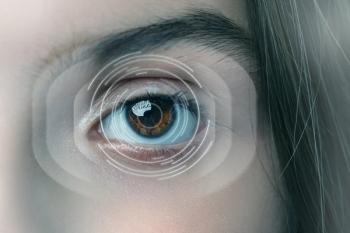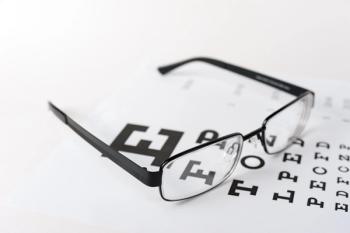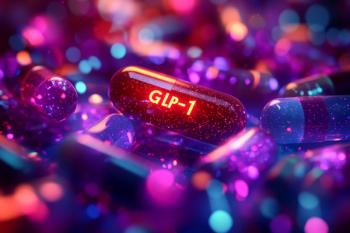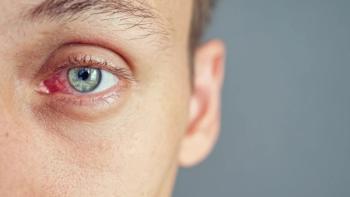
Depression May Exacerbate Symptoms of Chronic Dry Eye
While investigators have found a link between dry eye and depression, the exact reasons behind the link are not immediately known.
A new study has found that depression could exasperate symptoms of chronic dry eye disease.
However, investigators point out that the exact reasons behind the link are not immediately known. Could depression drive the severity of dry eye disease, or do chronic eye symptoms fuel depression?
Ultimately, investigators maintain that there is a link between severe dry eye and depression, and it is important for ophthalmologists and patients to be aware of the potential connection.
Dry eye affects around 16 million Americans, according to the US National Eye Institute. But the condition ranges widely in its severity: Many people have milder dry eye -- from staring at computers all day, for example -- and it can be managed with over-the-counter eye drops and frequent screen breaks.
Other people have severe symptoms, sometimes associated with certain autoimmune conditions, like Sjogren’s syndrome or rheumatoid arthritis.
Past studies have shown that people with chronic dry eye have a higher-than-average rate of depression. The new study—published March 10 in JAMA Ophthalmology—shows a correlation between depression and more-severe dry eye symptoms and signs.
According to investigators, the study found that of 535 adults with dry eye disease, those who screened positive for depression generally had worse eye symptoms throughout the one-year study.
However, the study cannot identify the cause of the depression, senior researcher Gui-shuang Ying, of the University of Pennsylvania Perelman School of Medicine in Philadelphia, said in a statement. The relationship could go in either direction, he said.
It can be easy to see how severe dry eye symptoms could affect people's mental well-being, said Yi Zhou, a medical student at Penn who also worked on the study.
"On the other hand," Zhou said in the statement, "there are studies suggesting that people with depression may have changes in how they perceive pain."
Moreover, depression can also have a major impact on lifestyle habits. If a person with depression is spending more time in front of TV and computer screens, for example, that could worsen dry eye symptoms, the researchers said.
Then there's a third possibility: Shared underlying factors might contribute to both depression and dry eye disease, said Anat Galor, MD, of the Bascom Palmer Eye Institute at the University of Miami, who wrote an editorial published with the findings.
The findings are based on 535 dry eye patients enrolled in a clinical trial testing omega-3 fatty acid supplements for easing the condition. At the outset, and 6 and 12 months later, the participants completed standard mental health questionnaires. Anywhere from 13% to 17% of patients screened positive for depression at one of those time points.
Overall, there was a correlation between depression and more severe eye symptoms -- even after the researchers took some other factors into account, such as whether patients had autoimmune disease.
Many medications, including antidepressants, can have dry eye as a side effect. But in this study, there was no link between antidepressant use and dry eye severity -- only depression itself.
One question is whether inflammation could be a culprit, since inflammation has been implicated in the disease process of both dry eye and depression.
The researchers were able to delve into that by looking at markers of inflammation in study patients' tear samples: They did not find any correlation between depression and those inflammatory markers.
However, Zhou said, that does not discount a role of inflammation. It's still possible that systemic inflammation, rather than inflammation at the eye's surface, could help explain the connection between depression and severe dry eye.
Whatever the mechanisms, the findings highlight a connection between dry eye severity and mental well-being. And it's important for health care providers to be aware of it, the researchers said.
If, for example, a patient's dry eye symptoms are worse than the clinical signs of the disease, it might be appropriate to do a mental health screening, Zhou said.
Investigators noted that additional study is needed to elucidate the relationship. The study was funded by the US National Institutes of Health.
Reference
Yi Zhou, BA; James Murrough, MD, PhD; Yinxi Yu, MS, et al. Association Between Depression and Severity of Dry Eye Symptoms, Signs, and Inflammatory Markers in the DREAM Study.JAMA Ophthalmol. Published online March 10, 2022. doi:10.1001/jamaophthalmol.2022.0140
Newsletter
Pharmacy practice is always changing. Stay ahead of the curve with the Drug Topics newsletter and get the latest drug information, industry trends, and patient care tips.























